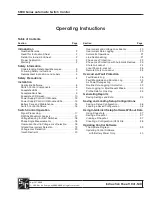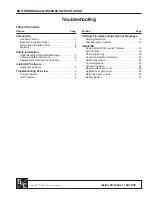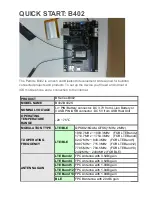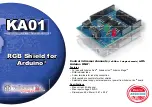
3
SEQUENCE PROGRAM CONFIGURATION AND
EXECUTION CONDITIONS
3.3 Settings for Creation and Execution of Multiple Sequence Programs
3.3.4 Stand-by type program
3
- 45
1
O
verv
iew
2
Per
fo
rma
nce
S
p
ecifica
tio
n
3
S
equ
en
ce P
ro
g
ra
m
Co
nfig
ura
tio
n a
nd
E
xecut
io
n Co
nd
iti
o
ns
4
I/O N
unb
er
Assig
n
m
e
nt
5
Me
mor
ie
s a
nd
File
s
Ha
nd
led
by CP
U Mo
du
le
6
Func
tions
7
Co
mmu
nic
a
tion
us
in
g
bu
ilt
-i
n E
th
e
rne
t po
rt
s o
f
CP
U mod
u
le
8
Co
mm
un
icatio
n
w
ith
Int
e
lli
ge
nt
Fun
ction
Mo
du
le
(3) Stand-by type program execution method
A stand-by type program can be executed in either of the following methods.
• Create subroutine and/or interrupt programs in a stand-by type program and call
them using a pointer or when an interrupt occurs.
(
(3)(a) in this section)
• Change a stand-by type program to any other execution type using an instruction
(
(3)(b) in this section)
(a) When placing subroutine or interrupt programs in a single stand-by type
program
When creating subroutine or interrupt programs in a single stand-by type
program, start it from Step 0.
The FEND instruction used for creation of subroutine or interrupt programs is not
required after the main routine program.
Figure 3.39 When placing subroutine programs in stand-by type program
P508
RET
RET
Y10
RET
END
Y11
Y12
P500
P501
Program B (Stand-by type program)
Program A
Main routine
program
Write
Write
Use common pointer.
Program A
Program B
















































